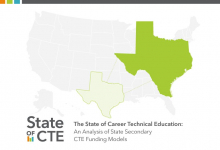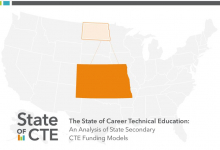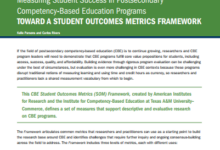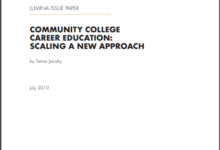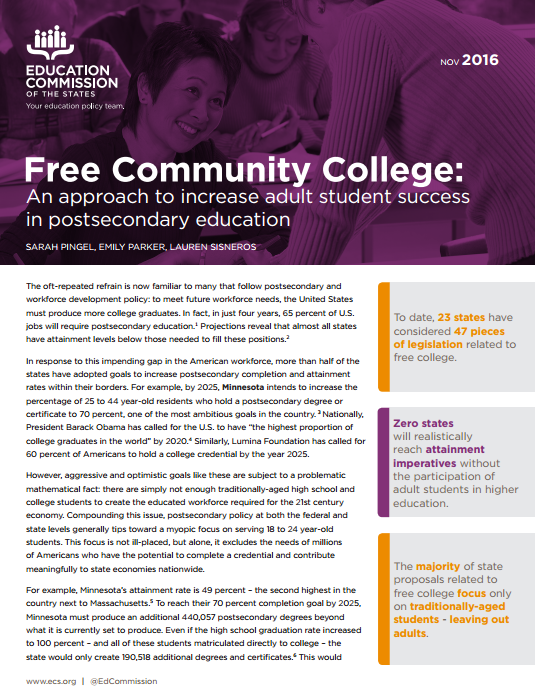To meet postsecondary attainment goals for the future workforce, many states have begun to explore or adopt tuition-free college programs. Programs such as Tennessee Promise, a last-dollar scholarship for students attending two-year community colleges, stand to dramatically increase the number of students earning postsecondary degrees or credentials and learning the skills needed to be successful in the workforce. With a growing interest in free community college programs, the Education Commission of the States released a policy brief that profiles different programs and lays out several policy considerations, including eligibility criteria, defining “free,” and the timing of the tuition award. The brief also explores strategies for expanding the benefits of a free community college program to reach non-traditional students such as adult learners.
Access & OpportunityFunding and Finance
The Lone Star State is a top state for total state funding for secondary Career Technical Education (CTE) programs,…

